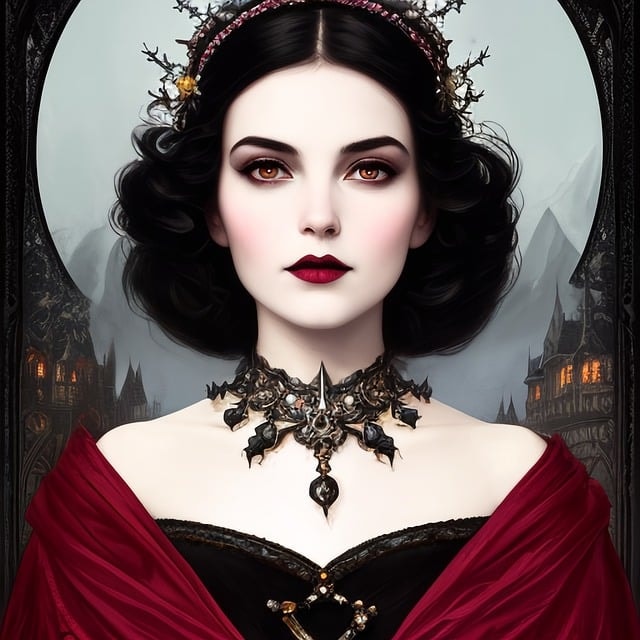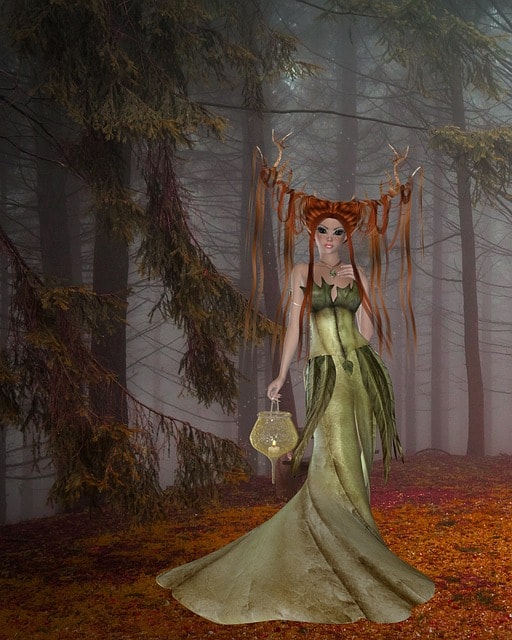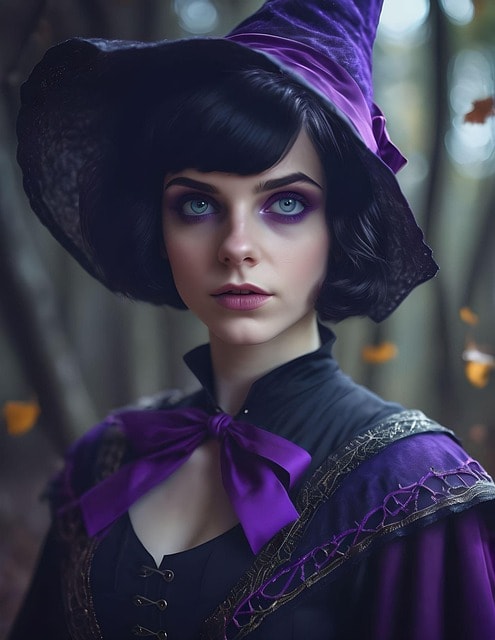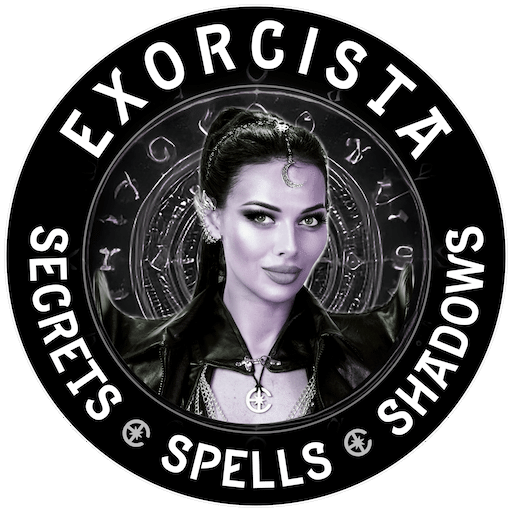Introduction: The Enigmatic Path of Wicca
In the dim glow of a crescent moon, beneath ancient oaks and whispering winds, modern Wiccans gather to honor deities older than time itself. Wicca, a pagan religion rooted in nature worship and magical traditions, has captivated seekers of the occult for decades. Yet, behind its serene facade lies a tapestry of secrets—rituals passed down through covens, whispered incantations, and a connection to the Horned God and Goddess that blurs the line between our world and the unseen.
This article delves deep into the shadows of Wicca, exploring its core beliefs, Wiccan traditions, and the enigmatic figures like Gerald Gardner who resurrected this ancient religion. Whether you’re a curious skeptic or a budding practitioner, prepare to uncover the truths—and terrors—of a faith that thrives in moonlight.


Chapter 1: What is Wicca?
Wicca is a modern, nature-based spirituality that draws inspiration from pre-Christian religions and folk magic. It is a diverse and eclectic practice that encompasses various traditions, including Gardnerian and Alexandrian Wicca. At its core, Wicca is a celebration of the cycles of nature and the interconnectedness of all living things. Many Wiccans believe in a divine power that is present in all aspects of the natural world, and they seek to live in harmony with the earth and its rhythms.
Wicca is often misunderstood as a form of Satanism or devil worship, but this is a misconception. Most Wiccans do not believe in the existence of Satan or any other malevolent deity. Instead, they focus on honoring the divine in all its forms, including the goddess and the god, who are often depicted as the feminine and masculine principles of the universe.
Wicca is a practice-based spirituality, meaning that it is centered on rituals, spells, and other forms of magical practice. Wiccans believe that magic is a powerful tool for personal transformation and growth, and they use it to manifest positive change in their lives and in the world around them.
Chapter 1: The Birth of Modern Wicca — Gerald Gardner and the Revival
Modern Wicca owes its resurgence to Gerald Gardner, a British occultist who, in the mid-20th century, unveiled traditions he claimed were preserved by secret covens. Gardnerian Wicca, named after him, became the cornerstone of contemporary practice. Alongside Alexandrian Wicca—a tradition founded by Alex Sanders—these paths form the backbone of many Wiccan groups today.
But why did Wicca, an ancient religion, reemerge during the early modern period? Historians speculate that post-war spiritual hunger and a fascination with pre-Christian pagan religions fueled its rise. Gardner’s writings, blending folklore, Freemasonry, and ceremonial magic, offered a structured yet mystical framework.
“Gardnerian and Alexandrian Wicca remain pillars of many Wiccan groups.”
“Gerald Gardner’s role in reviving this pagan religion cannot be overstated.”
Chapter 2: Wiccan Traditions — Covens, Solitary Practitioners, and the Wiccan Rede


Not all Wiccans walk the same path. While some join structured covens adhering to Gardnerian or Alexandrian Wicca, others embrace solitary practice. Solitary Wiccans often craft personal spiritual paths, blending rituals from eclectic sources.
Practicing Wiccans emphasize their connection to nature, personal responsibility, and the importance of ethical principles such as avoiding harm and respecting diverse beliefs.
Central to all traditions is the Wiccan Rede: “An it harm none, do what ye will.” This ethical guideline underscores the religion’s emphasis on harmony and personal responsibility. Yet, rumors persist of darker practices—rituals invoking the Horned God, a deity often misunderstood as sinister.
“The Wiccan Rede binds all spiritual paths under one moral code.”
“Many Wiccan groups emphasize coven unity, while solitary Wiccans forge their own journeys.”
Chapter 3: Rituals and Magical Traditions — From Sabbats to Spellcraft
Wiccans celebrate eight Sabbats annually, marking the Wheel of the Year. These festivals, like Samhain (a precursor to Halloween) and Beltane, honor cycles of life, death, and rebirth. Rituals often involve casting circles, chanting, and offerings to deities, reflecting the rich tapestry of the Wiccan tradition.
But what of their magical traditions? Spellcraft, herbalism, and divination are common. A Wiccan might craft a protection charm under a full moon or scry into a black mirror to glimpse the future. Yet practitioners warn: magic is not a toy. Stories abound of rituals gone awry—whispers of cursed objects and restless spirits.
“Wiccan rituals bridge the gap between the mundane and the mystical.”
“Many Wiccans observe Sabbats with rites passed down through generations.”
Chapter 4: The Wiccan Community — Myths, Misconceptions, and Modern Paganism
Hollywood often paints Wiccans as spellcasting villains, but the reality is far more nuanced. Most Wiccans prioritize environmental stewardship, gender equality, and personal growth. The Wiccan religion is a modern, Earth-centered faith that incorporates ancient practices. The Wiccan community thrives online, with forums and social media groups connecting practitioners worldwide.
Still, misconceptions linger. “Not all Wiccans worship the Devil,” laughs Sarah, a coven leader from Oregon. “We honor nature’s balance—the God and Goddess, light and shadow.”
“The Wiccan community defies stereotypes, embracing diversity and modern paganism.”
“Most Wiccans reject the ‘dark witch’ trope, focusing instead on spiritual practices.”
Chapter 6: Wiccan Ethics and Responsibility
Wiccan ethics are based on the principles of harm none and personal responsibility. The Wiccan Rede, which states “an it harm none, do what ye will,” is a guiding principle for many Wiccans. This means that Wiccans strive to live in a way that causes no harm to others or to the environment.
Many Wiccans also follow the Threefold Law, which states that every action returns threefold. This means that if a Wiccan performs an action with positive intent, they can expect to receive positive consequences. On the other hand, if they perform an action with negative intent, they can expect to receive negative consequences.
Wiccans believe in taking personal responsibility for their actions and their impact on the world. They recognize that their choices have consequences, and they strive to make choices that are in alignment with their values and principles.
Chapter 7: Wicca and the Environment


Wicca is deeply connected to the natural world and the cycles of nature. Many Wiccans believe that the earth is a sacred and living being, and they strive to live in harmony with its rhythms and cycles.
Wiccans often celebrate the eight Sabbats, which are seasonal festivals that mark the turning of the wheel of the year. These festivals are often centered on themes of growth, abundance, and harvest, and they provide a way for Wiccans to connect with the natural world and honor its cycles.
Many Wiccans also practice eco-magic, which involves using magic to promote environmental healing and sustainability. This can include rituals to protect endangered species, to promote sustainable agriculture, and to reduce waste and pollution.
Chapter 8: Wicca in the Modern World
Wicca is a growing and evolving spirituality that is adapting to the challenges of the modern world. Many Wiccans are using technology and social media to connect with other Wiccans and to share their practices and traditions.
Wicca is also becoming more mainstream, with many Wiccans openly practicing their spirituality and sharing their experiences with others. This has helped to reduce stigma and promote greater understanding and acceptance of Wicca.
However, Wicca still faces challenges in the modern world. Many Wiccans face discrimination and persecution, particularly in areas where Christianity is dominant. Wiccans also face challenges in terms of finding community and support, particularly in rural or isolated areas.
Chapter 5: The Shadows of Wicca — When Rituals Awaken the Unseen
Not all encounters are benign. Emily, a solitary Wiccan from New York, recalls a Samhain ritual that summoned more than ancestral spirits. “The air turned icy, and something… scratched at the altar,” she shudders. “I had to banish it with salt and iron.”
Such stories echo through the Wiccan community. While many Wiccans dismiss paranormal claims, others warn: dabbling in magical traditions without respect can invite chaos.
“Wiccans celebrate the sacred, but some rituals risk awakening ancient forces.”
“Modern witchcraft walks a fine line between enlightenment and danger.”
Conclusion: The Future of Wicca
Wicca is a vibrant and evolving spirituality that is adapting to the challenges of the modern world. As the world becomes increasingly interconnected, Wicca is likely to continue to grow and evolve, incorporating new ideas and practices from around the world.
Many Wiccans are optimistic about the future of Wicca, seeing it as a powerful tool for personal transformation and growth. They believe that Wicca has the potential to promote greater understanding and acceptance of the natural world, and to inspire people to live in greater harmony with the earth and its rhythms.
However, Wicca also faces challenges in the future, particularly in terms of finding community and support, and promoting greater understanding and acceptance of Wiccan practices and traditions. Despite these challenges, many Wiccans are confident that Wicca will continue to thrive and evolve, providing a powerful and meaningful spirituality for generations to come.
Dive Deeper Into the Unknown
The world of Wicca is vast, mysterious, and brimming with untold stories. For more chilling tales of the occult, subscribe to The Exorcista—where shadowy rituals and real-life hauntings come to life. Don’t miss our deep dives into cursed artifacts and interviews with modern witches.
Visit TheExorcista.com for articles that blur the line between myth and reality. Dare you step into the shadows?
Sources:
Hutton, Ronald. The Triumph of the Moon: A History of Modern Pagan Witchcraft. Oxford University Press, 1999.
Adler, Margot. Drawing Down the Moon: Witches, Druids, Goddess-Worshippers, and Other Pagans in America. Penguin Books, 2006.
The Witches’ Voice. Modern Wicca: A Guide for the Solitary Practitioner. https://www.witchvox.com











